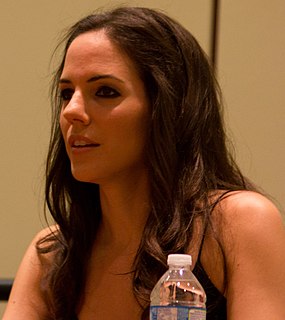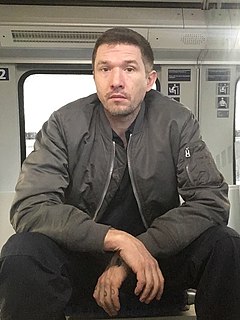A Quote by Erica Jong
As a reader, I want a book to kidnap me into its world. Its world must make my so-called real world seem flimsy. Its world must lure me to return. When I close the book, I should feel bereft.
Related Quotes
I don't believe that murders can be "solved." I think that this is the big lie of the mystery novel, that you should close the book and feel that the world is back in order and everything's all right. I want the reader to know that the world is not all right, and maybe we ought to do something about it.
As readers, we want not only a strong story, but also characters we can relate to, characters that feel real. We have to find something of ourselves in them. Each character, even those only there to serve the mechanics of the plot, should have a number of layers. The entire world you are stepping into as a reader must feel real. It must have resonance, you must be able to touch the light; smell the smells.
I read John Irving's novel 'The World According To Garp' when I was about 14 or 15. It was the first grown-up book that I had read. It is the story of a young man who grows up to be a novelist. I finished it, and I wanted to write a book that made the reader feel the way I felt at the end of that, which was sort of both bereft and elated.
I knew I had him in the first round. Almighty God was with me. I want everyone to bear witness, I am the greatest! I'm the greatest thing that ever lived. I don't have a mark on my face, and I upset Sonny Liston, and I just turned twenty-two years old. I must be the greatest. I showed the world. I talk to God everyday. I know the real God. I shook up the world, I'm the king of the world. You must listen to me. I am the greatest! I can't be beat!
One of the other reasons for writing this book [My Beloved World] was to hold on to the person you first met. More of the world knows about me now and follows me in a way that never happened before. I didn't want me, the inside of me, to change. Because I liked Sonia, the Sonia who has been. So another reason for writing the book was to hold on to that - whatever the best in Sonia was, to try to capture it.
As a reader I feel included a lot in Julie Carr’s hard and beautiful book. I can pretty much hear its author speak—a whispering that enables us into its world . . . a masterfully sutured journey, painfully useful. Sarah—Of Fragments and Lines is a book I know I will return to. And urge it on my friends who have lives too and write in them.







































